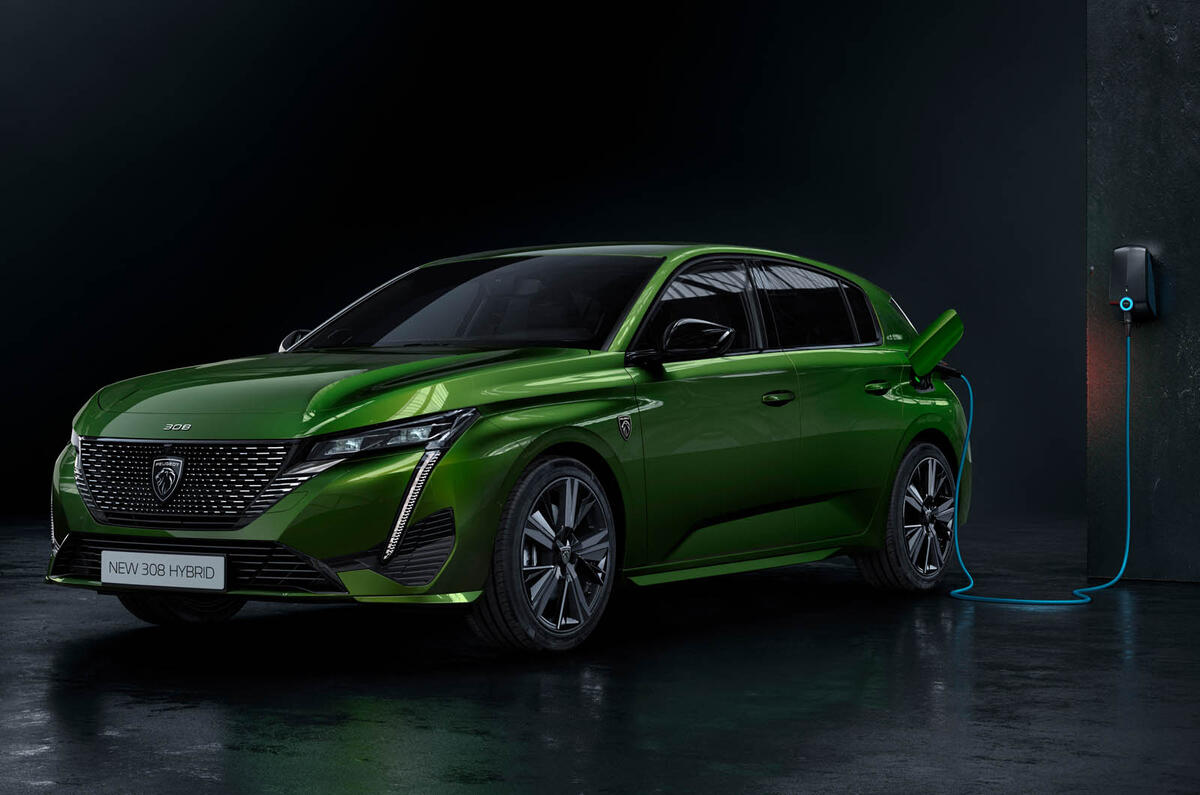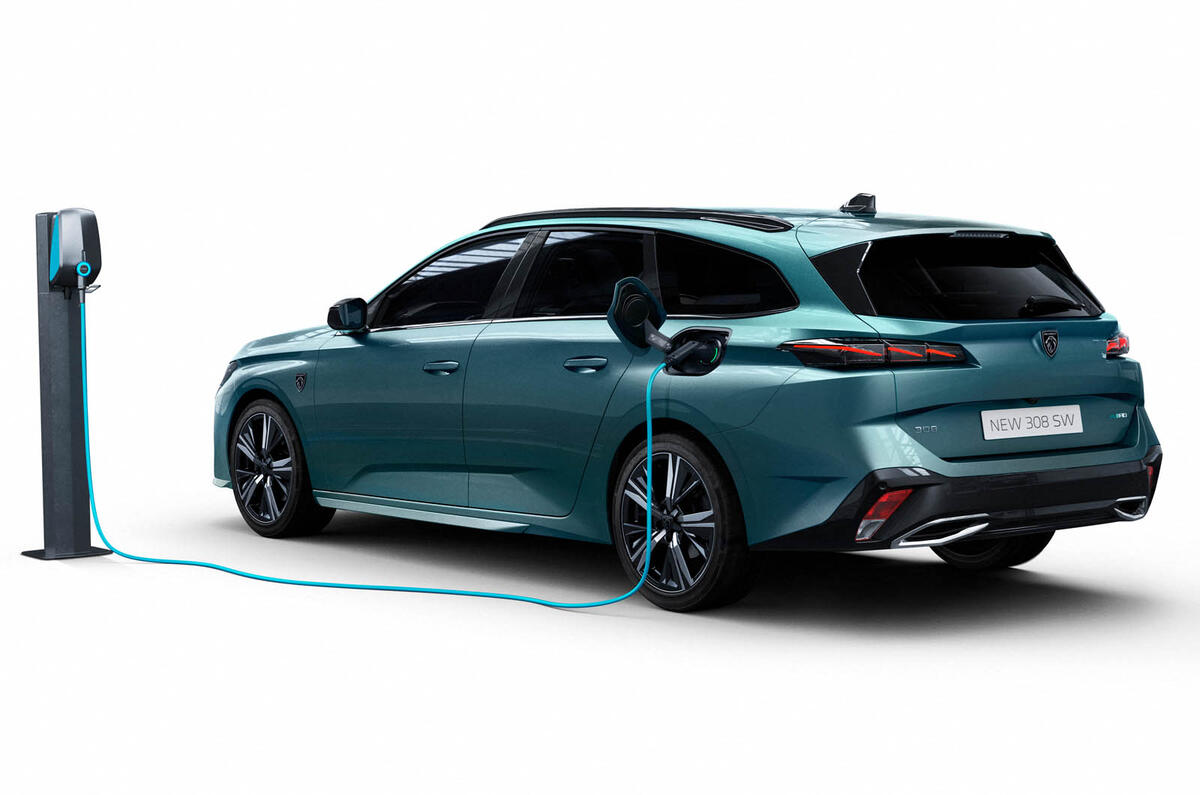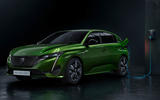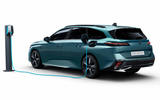Peugeot has confirmed the battery-electric variants of its Peugeot Peugeot 308 hatchback and Peugeot 308 SW estate will be more powerful, more efficient and have a longer range than its existing Peugeot e-208 supermini.
The e-308 will join pure-combustion and plug-in hybrid variants of the family hatchback to complete the Peugeot 308 line up when it goes on sale next year.
As with other EVs in the Peugeot line-up, the e-308 has its motor, on-board charger and heat pump under the bonnet. The battery sits under the floor, mostly in spaces beneath the seats, while the boot remains the same size as the 308 plug-in hybrid.
The e-308 is front-wheel drive only and will come with just one powertrain option. It has a 400V battery with a 50kWh of usable capacity (54kWh gross). The motor makes 154bhp and 199lb ft, 20bhp more than the e-208 supermini. At approximately 1600kg, it weighs the same as the Peugeot 308 plug-in hybrid.
The battery is only 4kWh bigger than the one in the smaller Peugeot e-208 but Peugeot is claiming that a new NMC811 battery chemistry will give the car increased efficiency, of 5mi/kWh (12.4kWh/100km), "the best among the competition", according to Agnès Tesson-Faget, Peugeot's 308 brand project manager. That would give the e-308 a test cycle range of nearly 250 miles. It can be fast charged at up to 100kW.
The car is still some way from market but Peugeot is expecting it to account for a large chunk of 308 sales. “If we look at the portfolio we have today, the plug-in is already over 20% of orders and we expect the electric version to reach at least that ratio,” Tesson-Faget told Car of the Year jurors.
Peugeot's CEO Linda Jackson said that the company's multi-powertrain strategy - which means its cars can have internally combusted, plug-in hybrid and full electric variants of the same model - has been "a commercial success".
"Peugeot was in the sales top three in Europe last year," Jackson said, "and electric versions made up 20% of sales in December 2021."
The e-308 will go into full production in July 2023, with deliveries shortly afterwards. Pricing will be announced nearer the time.










Join the debate
Add your comment
"The battery is only 4kWh bigger than the one in the smaller e-208 but Peugeot is claiming that a new NMC811 battery chemistry will give the car increased efficiency, of 5mi/kWh (12.4kWh/100km), "the best among the competition", according to Agnès Tesson-Faget, Peugeot's 308 brand project manager. That would give the e-308 a test cycle range of nearly 250 miles."
The NCM811 chemistry, of itself, will not increase efficiency or range. Range, given weight and aerodynamics, is determined by the kWhs stored. 54 kWh is 54kWh whatever the battery chemistry. The extra energy density of this chemistry, over the earlier chemistry in the 208, will reduce the battery pack weight and hence overall weight of the vehicle thus increasing efficiency. The 8% extra capacity (54 v 50) will negate some of this. The overall weight of the 308 is quoted at approx 1600kg v 1455kg of the 208. Thus it is approx145kg heavier than the 208. I think the 5mi/kWh (and hence 250 mile range) is unlikely to be realised except in very favourable conditions. As the MB EQXX showed, aerodynamics are a very important element in increasing range (claimed 6mi/kWh) so perhaps the 308 is very aerodynamic?
The 308 is quite aerodynamic, think I seen on Car it was 0.28Cd. Efficiency will be key to get anywhere near this claimed range
Decent range for the battery size, hopefully the price will be competitive against the ID.3. Wonder if they will do a bigger battery option with a more powerful motor eventually, seems a little on the low power side compared to others out there. The estate is a particularity intriguing option, one I hope more manufacturers follow. Less SUVs, more estates please